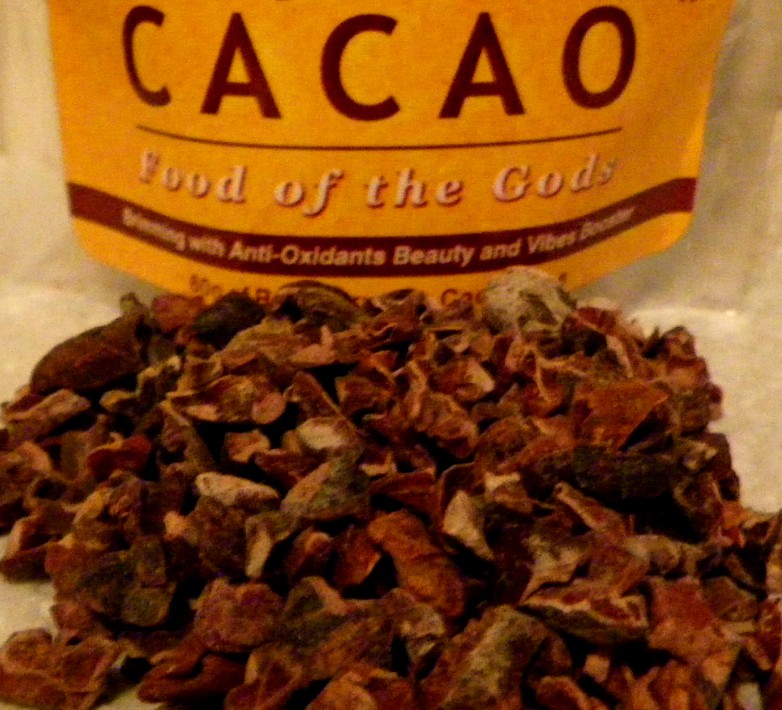We have just had the Christmas season, the time for joy and junk food! And soon it will be Easter. But before scoffing too many Easter Eggs, have you considered that you may not be so joyful if you do? A recent study published in the British Journal of Psychiatry suggests that consuming too much of those processed foods can leave you feeling the moody blues. This isn't just about a temporary sugar crash; the effects can be much more profound and long-lasting, impacting not only your mood but also your overall health and well-being and ability to achieve your fitness goals. The intricate relationship between our gut and our brain, often referred to as the gut-brain axis, plays a crucial role in this connection. The gut, sometimes called the "second brain," is home to trillions of bacteria that influence everything from digestion to mood regulation. A diet rich in processed foods can disrupt this delicate balance, leading to inflammation and potentially contributing to mood disorders.
Long-Term Impact of Processed Foods on Mental Well-being
A compelling study conducted over five years by British and French scientists on 3,486 London office workers provided substantial evidence for the link between diet and depression. The research, which delved into the dietary habits of participants through detailed questionnaires assessing the consumption of 127 different food items over the past year, categorized individuals into two distinct groups: those primarily consuming whole foods and those whose diets heavily relied on processed foods. After five years, the scientists meticulously assessed the participants for self-reported depression. The findings were striking: those in the processed foods group exhibited a 58 percent higher risk of developing depression. Importantly, the researchers controlled for confounding factors such as smoking habits and body mass index, and also excluded participants who showed pre-existing signs of depression at the start of the study, further strengthening the validity of the results. This study underscores the profound and long-term impact of dietary choices on mental health, suggesting that prolonged consumption of processed foods can significantly increase the risk of depression, while a diet rich in whole foods may offer protective benefits.
The Immediate Influence of Food on Our Emotional State
Beyond the long-term effects, the food we consume can have a remarkably quick impact on our mood. This immediate influence is multifaceted, encompassing both psychological and physiological mechanisms. Psychologically, the act of eating can trigger conscious thoughts and feelings. For instance, indulging in a treat might evoke feelings of guilt or satisfaction, while choosing a nutritious meal can foster a sense of well-being and self-care. Physiologically, food directly affects our brain chemistry. Studies have consistently demonstrated that a diet abundant in whole foods, rich in antioxidants, vitamins, and minerals for brain health like folate, can positively influence mood regulation. These nutrients play vital roles in neurotransmitter synthesis and function, directly impacting our emotional state. For example, folate is essential for the production of serotonin, a neurotransmitter associated with feelings of happiness and well-being. Therefore, incorporating nutrient-dense foods into our diet can be a powerful tool for enhancing mood and promoting emotional stability. This immediate effect, combined with the long-term benefits, highlights the importance of making conscious dietary choices for both mental and physical health.
Foods That Can Naturally Elevate Your Mood
Nature provides us with a wealth of foods that can naturally boost our mood and contribute to overall well-being. These foods are packed with essential nutrients that support brain function and emotional balance. One example is fish, particularly oily fish like mackerel and sardines. These are excellent sources of long-chain Omega-3 polyunsaturated fatty acids, which have been extensively studied for their positive effects on brain health and mood regulation. Research suggests that higher intakes of fish can reduce the risk of depression and improve cognitive function. Another mood-boosting food is cocoa, the raw form of chocolate. Cocoa is rich in flavanols, powerful antioxidants that can increase blood flow to the brain, reduce tiredness, and combat mental fatigue. Opting for dark chocolate with at least 70% cocoa content or incorporating raw organic cocoa nibs into your diet can provide these benefits without the added sugars and processed ingredients found in many commercial chocolates. Combining dark chocolate with fruits like berries or bananas can create a delicious and mood-enhancing treat.
The Power of Whole Foods for Fitness and Well-being
While the allure of marketed "superfoods" and supplements can be strong, nature still offers a plethora of readily available and affordable options for supporting both mood and fitness goals. Focusing on a diet rich in whole, unprocessed foods is key. These foods provide a wide range of essential nutrients, including vitamins, minerals, antioxidants, and fiber, which are crucial for optimal physical and mental health. Prioritizing fresh fruits, vegetables, whole grains, and lean proteins can provide the necessary fuel for workouts, support muscle recovery, and contribute to a positive mood. This holistic approach to nutrition recognizes the interconnectedness of physical and mental well-being, emphasizing the importance of nourishing the body with whole foods for optimal performance and emotional balance. Choosing organic options when possible can further enhance the benefits by minimizing exposure to pesticides and other potentially harmful substances. By focusing on whole foods, we can harness the power of nature to achieve our fitness goals and cultivate a positive mood, promoting a healthier and happier lifestyle. Remember, the journey to a healthier lifestyle is not about restrictive diets or expensive supplements, but about making sustainable and informed choices about the food we consume. By prioritizing whole foods and understanding their profound impact on our mood and physical performance, we can unlock our full potential for well-being.
In conclusion, the connection between food, mood, and fitness is undeniable. By making conscious dietary choices and prioritizing whole, unprocessed foods, we can significantly impact our mental and physical well-being. From the long-term effects of processed foods on depression risk to the immediate mood-boosting benefits of nutrient-rich foods like fish and cocoa, the food we consume plays a crucial role in our overall health. Embracing a balanced and nutritious diet is not just about achieving fitness goals; it's about cultivating a positive mood, enhancing cognitive function, and promoting a healthier and happier lifestyle.
Footnote: British Journal of Psychiatry study on processed foods and depression; Research on Omega-3 fatty acids and brain health; Studies on cocoa flavanols and cognitive function; Information on the gut-brain axis and its influence on mood; Nutritional guidelines for optimal fitness and well-being.













